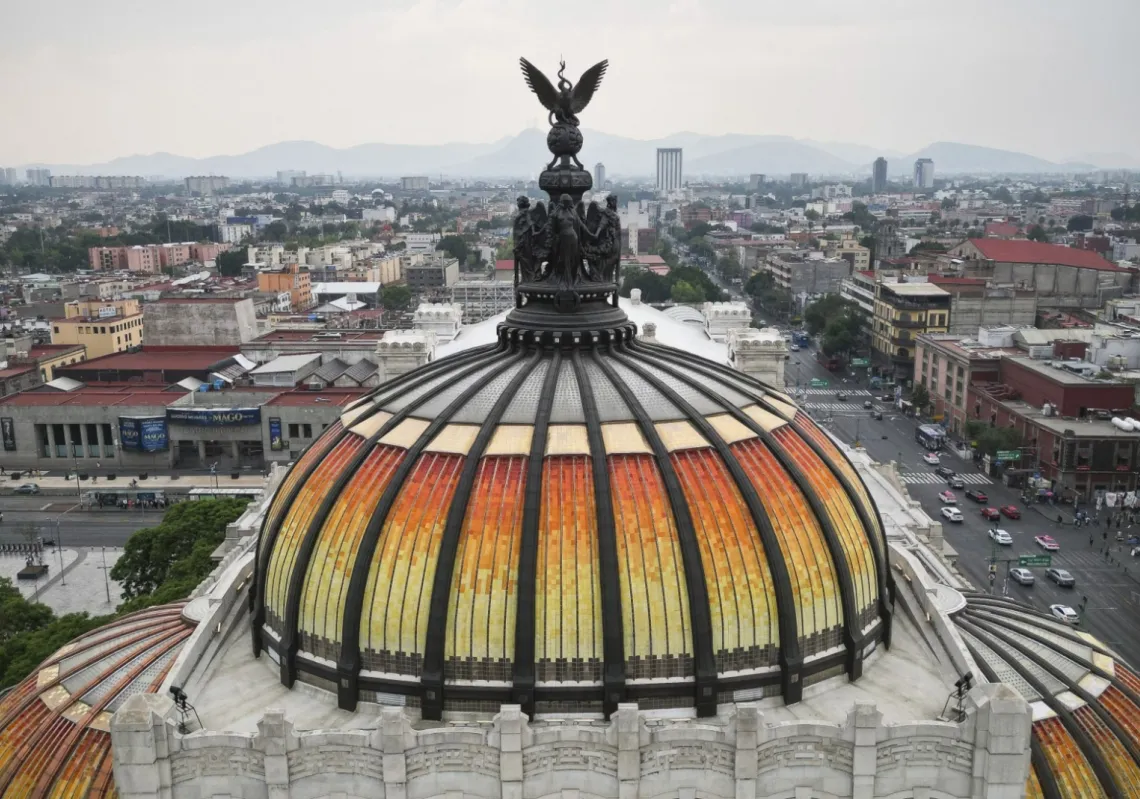The dangerous confrontations that took place in several areas in southern Yemen have revealed serious challenges that add to major problems facing this country which has a deep-rooted origin. These challenges include a struggle of differences, political rivalries and disputes over the distribution of oil revenues, in addition to the growth of radical Islamic movements and the conflict with the Houthis, as well as the increase of piracy activities, very close to the coasts of Yemen.
Many have warned against Yemen becoming a decadent state, during the next few decades. The program of human development indicators run by the United Nations has placed Yemen in the 153 place out of 177 countries.
Moreover, 43% of the population live at a level under the bottomline, while per capita income is estimated at between 650 to 800 dollars a year. The country is also experiencing a rise in its population, shrinking resources and the growth of radical movements, including al Qaeda, which launched several operations in recent years in the country.
The government found itself in recent years in the face of an armed movement led by Sheikh Badr al-Din al-Houthi, who was killed in military operations by government forces in 2004. Abd al-Malik al-Houthi succeeded him in leading the movement, and he accuses the government of cooperating with the Americans and the Zionists.
Despite the fact that this movement – which consists of the elements of the Shiite Zaidi – is still limited, some experts believe that its survival weakens the government and the military. Reconciliation attempts were made, including Qatari intervention to mediate between the two sides, but conditions do not seem to have turned into peace.
But the most serious element brought about by these clashes is the rise of public resentment against government practices in some southern areas in the country. These areas suffer from high unemployment, and protests were organized in 2007.
Demonstrations expanded in March and April 2008 to include tens of thousands of demonstrators who expressed anger at their exclusion from government jobs and other positions. They also complained of being deprived of government services, in addition to suffering from rising inflation. Some demonstrators burned down police stations and army property in the town of Dali and other towns in the south, and large numbers of demonstrators were arrested.
The demonstrators demand equality and a greater share of social welfare services and other benefits, and accuse politicians of corruption. The recent developments which continued over the past week have assumed new proportions that threaten the dream of unity for the Yemenis, a dream that Yemenis in the north and south paid a heavy price to achieve.
The development of events showed how deep and wide the rift was between the government and a large number of residents. They began to describe the current situation as an "occupation" and called for "independence".
Some of them have expressed that in some publications and Internet blogs. Some remarks by the Yemeni president and some opposition leaders have reflected warnings against the risk of the country sliding into civil war, which would eventually lead to its disintegration.
President Ali Abdullah Saleh warned against the dangers of al-Qaeda and Houthis, and he hinted at the danger of the so-called "southern movement", which seeks to destroy the unity experience. He also warned of a repeat of the scenario of Iraq and Somalia, and stressed that whoever fancies that things will be limited to a two-state formula, one in the north and the other in the south, is completely deluded.
In an armed society that combines strong tribal and fundamentalist trends, living in an environment of deprivation, poverty and a weak central state, when the door for secession is open, it carries the risk of expanding from one region to another.
This situation cannot be viewed in isolation from developments in several countries in the region, particularly Iraq, Sudan and Somalia. In these countries, faulty government practices, external interventions, and narrow aspirations of local politicians have used regional, tribal and other loyalties to their advantage.
These practices make use of a reality that emerged from historical, social, political and economic developments. These developments have given rise to divergent experiences and cultures in the same country, and were deepened by these faulty practices.
Some observers attribute this rift to certain factors including secessionist desires of southern leaders, who are not satisfied with the behaviour of the central government in the south, or have their own ambitions. Therefore, those leaders stoke the fire of secession. On the other hand, some others attribute it to foreign interference, or desires of northern leaders to dominate the south.
But the whole issue is more complex and intertwined, and the situation can not be seen in isolation from the different experience and history of both the North and South. The North managed to enjoy a high degree of autonomy under the reign of Al-Hamid El-Din Imams in the face of international and regional ambitions.
Several uprisings had flared up against Ottoman rule which enabled Yemen to break free from their rule for some periods, making the most of Yemen's geographical location, the inaccessibility of the rough mountainous regions and the then-prevailing tribal and religious status quo, to maintain their independence.
Meanwhile, since the beginning of the 19 century, the South fell under British control, and a different geo-political situation of the south led it to be relatively open to the outside world. People migrated overseas and a commercial mentality emerged that weakened tribal loyalties without entirely putting an end to them. Moreover, the colonial experience led to building institutions and contributed to the creation of a different reality.
This difference was boosted by the departure of the British and the rise of the national front, which seized the reins of government in the South, after the ascent of national liberation movements. The new authority had reinforced practices and visions that led to the creation of civic identity, in spite of the mistakes and the great divisions that occurred among the ruling party.
When the South declared its independence, the North was still suffering from the battles between the royalists and the Republicans. Swept off their feet by declaration of the South's independence, the Republicans could not fight on two fronts, and some of them recognized the south's leadership, while others opposed it.
Some of those leaders called for the recognition of the South as they felt that they need it in case the republican rule falls in Sana'a. The reign of independent rule, which lasted more than two decades, led to the emergence of civil society organizations which focused on equality and the rights of workers and women at a time when tribal loyalties continued to play a prominent role in the North.
When the voluntary union was agreed between the Northern President Ali Abdullah Saleh and Southern President Ali Salem al-Baid, the two sides unified into one Yemen and Ali Abdullah Saleh became president of the Presidency Council.
Ali Salem al-Baid, Secretary General of the Socialist Party, became vice-president. But a number of differences occurred between the two sides and al-Baid started exercising his powers in Sana'a in 1993 after assassination attempts against members of the Yemeni Socialist Party.
The rifts had been contained by signing an agreement document in 1994 in Jordan. However, differences re-occurred in the governorate of Abyan, where armed clashes took place between forces loyal to both parties, eventually evolving into a fierce war which lasted for about two months and ended with the defeat of the Socialist Party and the surrender of its weapons.
During that war, Yemeni President Ali Abdullah Saleh forged an alliance with the National Conference for Reform and some Islamic forces in the North and South. Among them was Sheikh Tariq Al-Fadli, the well-known Islamic tribal leader who previously allied with President Saleh and was among the leaders of the ruling General People's Congress.
He also contributed to organizing the ranks of Islamic fighters against forces loyal to the Socialist Party in the South. But Fadli announced a few days ago that he was indifferent to the government in the North and called for the independence of the South.
As a result of the policies that led to the break -up of the bureaucratic, military and security institutions in the south by the end of the civil war, large numbers of southerners lost their jobs. Consequently, it led the southerners to ask for securing their rights and salaries, and the supply of more jobs.
As protests spread, the government announced the formation of committees to examine the adverse effects of the war. But many people believed that the move did not lead to tangible results, and some southerners started accusing the government of marginalizing the South and ignoring its population.
Some southerners also believed that northerners in the government introduced culture and tribal practices that were rejected by a large portion of southerners. They even considered them the reason behind losing their civil rights.
The government has carried out some administrative reforms. But some southerners considered them fake, belated and inadequate, in addition to the inefficient security and political measures. One of the most prominent reform moves was supported the election of governors in all parts of the country in an attempt to calm the situation.
Some opposition figures took advantage of the decision to postpone the elections for two years to express their opposition to government positions. On its part, the government contacted the leaders of the opposition parties to alleviate matters. But there had been differences among some opposition leaders.
Some of them expressed their opposition to the separatist tendencies, while others labelled what was happening in the South as treason. Calls have emerged recently focusing on the need for independence and describing the North as "colonialists". We should note that Baid had called in 1994 for rebuild the unity between the two Yemens on democratic and fair basis.
Sultan Al-Etwani, head of the Supreme Council of the opposition parties represented in the "joint meeting" called for rejecting foreign interference in the affairs of the country and to engaging in a comprehensive national dialogue that would lead to the protection of the country's unity to achieve political reform that would end the violence. But three groups of the southern movement announced the formation of a united front "for the peaceful struggle for independence, liberation and the restoration of the state of the south" and asked the people of south Yemen to support this front and join their ranks.
Experiences have proved that civil wars are the toughest and fiercest types of war, and they affect everyone. So, there is a need to take recourse to reason, whereas the solution lies in real partnership that considers the interests of all parties, bearing in mind cultural and social dimensions prevailing in all parts of the country.
On the regional level, disturbances in Yemen concern their neighbours, who fear that the country would become a base for al-Qaeda elements, a group that aims to destabilize the region.
The United States shares the same anxiety of the region, and General David Petraeus, leader of U.S. Central Command, told the U.S. Congress last April that any weakness that hits the Yemeni government will contribute to providing a safe haven for al Qaeda. He added that "terrorist groups could threaten Yemen's neighbours, particularly Saudi Arabia and other Gulf states."
The United States and its allies are also concerned about the surging activity of fighters in some terrorist networks, which began building up their forces on the territory of Somalia, next to Yemen, a strategic location which could benefit those groups.
Can Yemen's neighbors and the international community play a role in helping to save Yemen from this serious conflict by supporting real development that would benefit all citizens?
Dr. Edmund Ghareeb -Adjunct Professor of Middle East history and politics at American University. An internationally recognized expert on the Kurds, Iraq and media issues and author of several books including "War in the Gulf".








